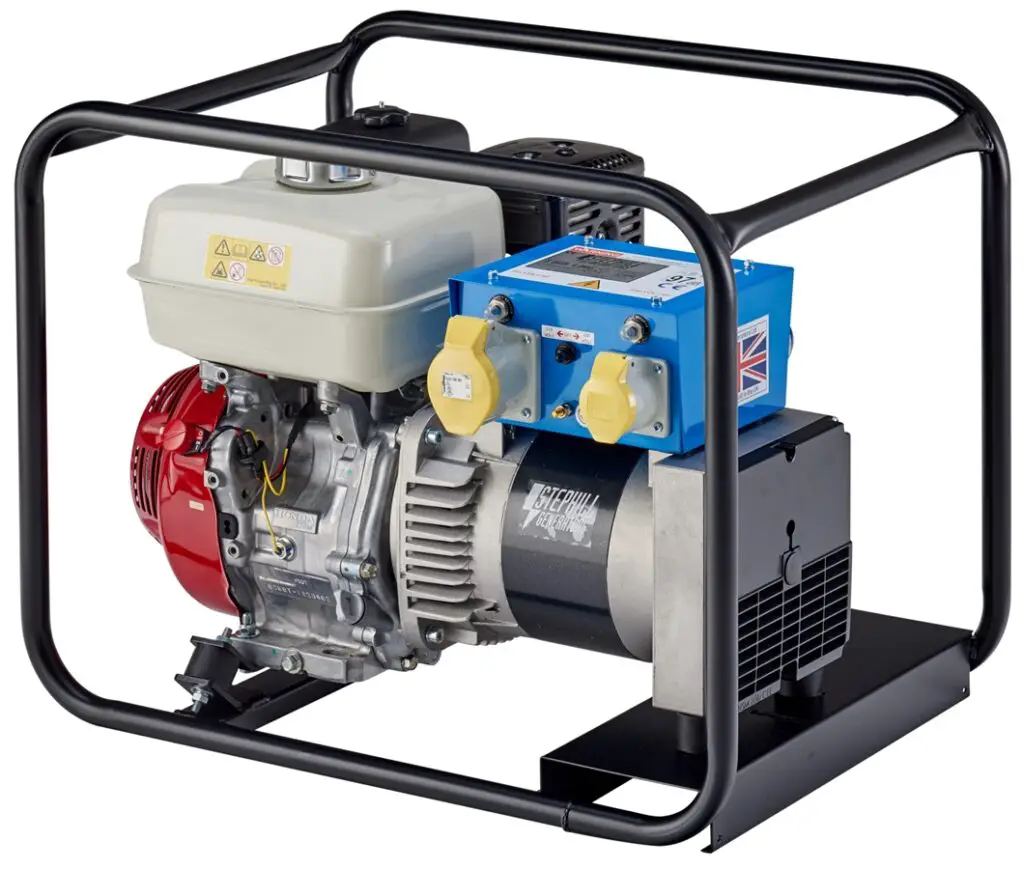- The use of generators in Africa has become a necessity for businesses as they complement the downtime of electricity for continued productivity.
- The Environmental Management Authority (EMA) has ordered a fine of ZWL$100,000 for operating a generator over 5kVA without a license, in accordance with Section 64 of the Environmental Management Authority Act.
- The Zimbabwe Energy Regulatory Authority (ZERA) has enforced the proper usage of generators exceeding 100 kilowatts of installed capacity to enhance public safety.
Zimbabwe’s energy landscape has been marred with numerous challenges in recent times, which has resulted in a significant proportion of businesses and households having to resort to alternative sources of power. This has been in a bid to mitigate the detrimental effects of power outages and ensure that the wheels of productivity continue to spin.
However, in the midst of this energy deficit, the Environmental Management Authority (EMA) has instituted a set of regulations that are aimed at ensuring the proper usage of power generators, especially those with a capacity of more than 5kVA.
The EMA has ordered that a resident of Harare pay a fixed penalty of ZWL$100,000 for illegally operating “an air polluting appliance (generator) without a licence,” which is prescribed in terms of Section 64 of the Environmental Management Authority Act.
“Imagine, you must now pay tax to operate a generator in Zimbabwe over 5kva. Yet, you have to do so because the government can’t supply power. This is the “logic’ of a governance culture that is clearly not fit for purpose. Poor Zimbabweans also pay a fee for the radio in their cars. Government fails to deliver a basic service, citizens are forced to make a plan and then government exploits this with a licensing levy. This is about income generation and has nothing to do with environmental considerations,” he said.
In a bid to further regulate the use of generators, the Zimbabwe Energy Regulatory Authority (ZERA) has moved in to enforce the proper usage of generators that exceed 100 Kilowatts of installed capacity. This development is in accordance with the Energy Regulatory Act, the Electricity Act as well as the Environment Management Act, as spelled out by the statutory instrument 103 of 2008. ZERA has issued a statement, highlighting the need for all holders of standby generators exceeding 100KW to promptly apply for operating licenses to satisfy the legal requirements for the usage of generators for both domestic and commercial purposes.
The Zimbabwe Energy Regulatory Authority (ZERA) is a body corporate established in terms of the Energy Regulatory Authority Act [Chapter 13:23] of 2011. It is mandated to regulate the entire energy sector in Zimbabwe in a fair, transparent, efficient and cost effective manner for the benefit of the consumers and energy suppliers. ZERA derives its mandate from the Energy Regulatory Authority Act [Chapter 13:23] of 2011 read together with the Electricity Act no 4 of 2002 [Chapter 13:19], the Petroleum Act [Chapter 13:22] of 2006 and subsequent amendments.
Investigations by ZERA have revealed that many generators are not in total conformity with the regulatory requirements, with non-compliance attracting a fine of ZW$100,000. The need to ensure public safety in the operation of these generators, as well as to prevent accidents in the operation of electrical gadgets, has seen ZERA move in to effectively regulate the existence and usage of generators. The use of generators in Zimbabwe has become a necessity for businesses, as they complement the downtime of electricity and ensure continued productivity, playing a critical role in the economy’s industrial production mix.
It is imperative to note that the regulation of generator usage in Zimbabwe is not a simple matter. The issue is multi-faceted and takes into account the numerous interrelated elements of energy provision and utilization. While the EMA has sought to address environmental considerations, the ZERA has focused on ensuring the safe usage of generators, particularly with regards to public safety. Both authorities are operating within a complex and dynamic regulatory environment, and the penalties imposed for non-compliance are indicative of the importance attached to the proper usage of generators.
Background of power woes in Zimbabwe
Zimbabwe has a long history of power woes, dating back to the late 1990s when the country’s economy started to deteriorate. The lack of investment in the electricity sector and the lack of maintenance of existing infrastructure have contributed to the current power crisis.
A generator can be defined as a device that transforms mechanical energy into electrical energy through the use of a magnetic field. It operates by converting the energy generated by an engine into electrical power.
Generators are available in a variety of capacities, ranging from small, portable units designed for recreational use, to large industrial generators that provide backup power for businesses and homes. In terms of power output, generators can range from less than 1 kilowatt (kW) to over 100 kW. The capacity of a generator is typically determined by the size of its engine and the type of alternator used to produce electricity.
While generators can provide a much-needed source of power in areas with limited or no access to electricity, they can also contribute to pollution problems. This is particularly true for older models that burn gasoline or diesel fuel and emit toxic fumes into the air. The use of these generators also contributes to greenhouse gas emissions, which contribute to climate change.
However, the use of generators has become a necessary solution in many African countries, including Zimbabwe, where the current electricity crisis has forced businesses and households to resort to alternative sources of power.
